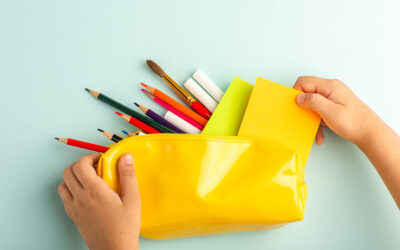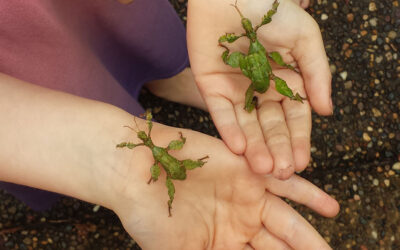Parental stress sneaks up on us when we’re not looking. As a parent, stress can take over your body and your life, but it can also affect your child’s development.
Psychologists define parental stress as the distress you experience when you feel as though you aren’t coping as a parent. You are overwhelmed by the demands placed on you and you don’t feel you have sufficient resources or abilities to meet them.
There are a number of causes for parental stress and no two parents will face the same set of challenges at once. Children, financial problems, social isolation and lack of support can all contributing to parental stress. As can the environment in which you live.
Be assured though, feeling overwhelmed does not make you a bad parent. It simply highlights you might have too much on your plate. It’s important to remember this because those feelings of inadequacy can also add to the stress you are experiencing. It’s a vicious cycle.
What’s also important is that you don’t try to suppress or dismiss these feelings. You shouldn’t feel overwhelmed, fed up or burnt out. You need to have your wellbeing at the forefront of your parenting — for your benefit and that of your kids.
How does stress affect your parenting?
Parents who feel stressed often react in one of two ways:
- they blow a fuse or get upset easily, directing their frustration towards their child/ren
- emotions overwhelm them and they become withdrawn and/or unresponsive.
How does parental stress affect children?
You might not intend to, but your emotions can be passed onto those around us. If you’re feeling stressed, chances are your children are feeling that way too. The difference is that unlike adults, children don’t really understand what’s happening to them.
Stress makes us less sensitive and less-responsive to our child/ren’s care needs. Research has also found that babies exposed to parental stress don’t develop as well as babies who aren’t exposed to such stresses. It’s found these children are also more prone to anxiety and stress-related illnesses in adulthood.
What can you do to manage your stress?
First, drowning in guilt or worry isn’t the answer to solving your parental stress. Here are five things you can do to help you manage stress in your life.
Refocus
Take some time to step back and focus on what are the really important things in your life. This can be a powerful tool in regaining some control over our lives.
Are the important things what you spend most time on? You often find yourself caught up in time-consuming tasks or situations and think, “Why am I doing this?” The answer is because you didn’t have something more important already scheduled in.
By structuring your life to reflect the things you value the most, you can weed out many inconsequential time-wasters. If you regularly think about your main priorities and goals in life, and schedule time for them, you’ll automatically feel more focused and be more careful with the way you spend your time.
Think about what is most important to you. Is your everyday life aligned with these things, or are there some areas that you could adjust, to leave a bit of precious time just for you or your loved ones?
Remember to breathe
What’s great about this is you can do it for two minutes or 10 – you just fit it into however much, or little, time you have, whether you’re drifting off to sleep, stuck in traffic, or waiting for your child to finish on the toilet!
Sit (or lie) down and get as comfortable as you can. Close your eyes (not if you’re driving). Breathe normally and place your fingertips lightly over each side of your abdomen so they’re resting lightly on the base of your rib cage. Then, when you’re ready:
- breathe in deeply through your nose as you count to five in your head. Try and feel your fingers rising as your ribcage rises and expands. Feel the breath rise into the chest cavity as it fills with air.
- Hold for a count of two. Relax in the moment. Then release slowly, breathing out through your nose to another count of five. Feel the breath push out all the way from the bottom of your rib cage.
- Hold for a count of two before breathing in again and continue this rhythm for as long as you can, before gently opening your eyes.
During times of stress or anxiety, breathing more deeply immediately makes you feel more calm and in control. (If you find it too hard to hold your breath for the count of five, start at three or four and try to increase over time).
S-t-r-e-t-c-h… and relax
Stretching is great for releasing tension and parental stress. Try doing some basic stretches before you go to bed or first thing in the morning. It is important to stretch correctly.
Joining a yoga, Pilates, tai chi or body balance class can be a great way to learn some safe, simple stretches whilst also incorporating a beneficial form of relaxation into your life. Shop around for classes that run in the evening if you can’t get away during the day or find out about classes that may be run at your local gym or council run centres where crèches may be available.
Treating yourself to the occasional massage is also a great way to raise your stress buffer for the rest of the week. Another really simple idea, especially now the weather is cooler, is to pop a heat pack in the microwave when the kids have gone to bed and place it behind your neck as you sink into a comfy chair (or bed). Mmm.
Physical health
We all think about healthy eating two days before having to squeeze into a new dress! However, what we eat really does affect how we feel.
If you’re tired and run down all the time, take a moment to jot down what you eat on an average day. You might be surprised at what you discover.
Do you eat proper breakfast and lunch, or just pick at whatever you’re making for the kids? While ensuring your family is in good health it can be easy to put any concerns about your own eating habits on the back burner or in the ‘when I have time’ basket.
If you’re skipping major meals, you may be compensating by snacking on easily-grabbed foods like biscuits or chips, which move quickly through your system and leave you feeling tired and sluggish. Maybe it’s worth visiting your doctor, health practitioner or nutritionist to learn more about how your diet is affecting the way you feel and adding to your parental stress levels.
Also, it can be hard to think about exercise when we already have too much on our plate, but it really is one of life’s natural antidepressants – a swim, a session at the gym or a long walk can work wonders to reduced your parental stress and make you feel rejuvenated by having spent some time doing something just for you.
Instant stressbusters
Break things down. If you are overwhelmed, break things down into small, easily achievable tasks or goals and check them off as they’re done.
Have a five-minute tidy-up. This might sound more stress-inducing than stress-busting, but if your environment is getting a little cluttered, take a couple of minutes to put things away, and you will instantly feel more in control.
Take a break between tasks, be it housework, work or looking after baby. Take a minute to nurture yourself. Put on your favourite music, make a cuppa or step outside and enjoy some sunshine before you start the next job.
Listen to your body. Deep down, you know what you really need.
You might also like…
Stressed out and ready to shout?
Talking to your kids about natural disasters and traumatic news
Feed, play, listen, love: 4 Tips to help raise a happy teen


